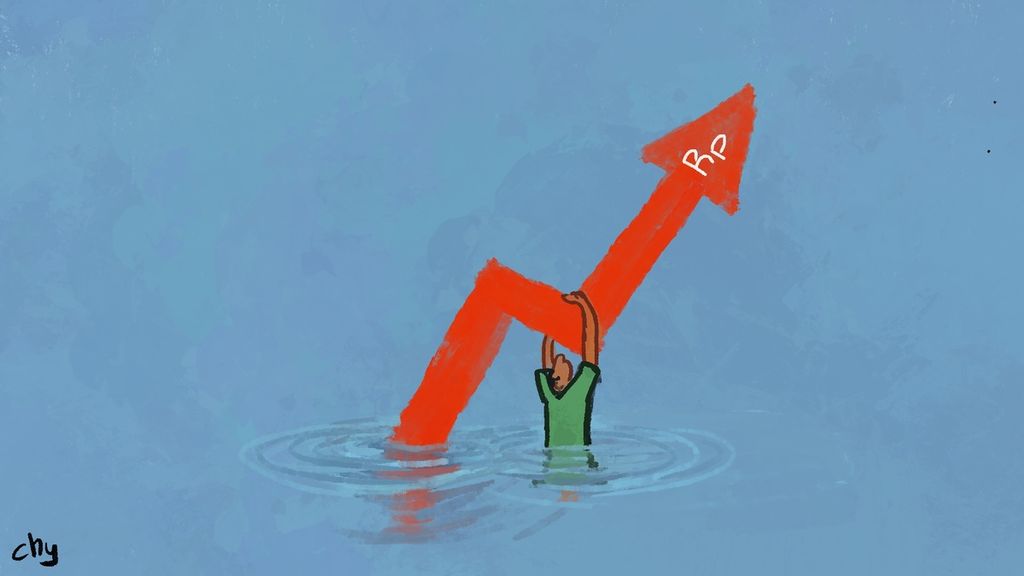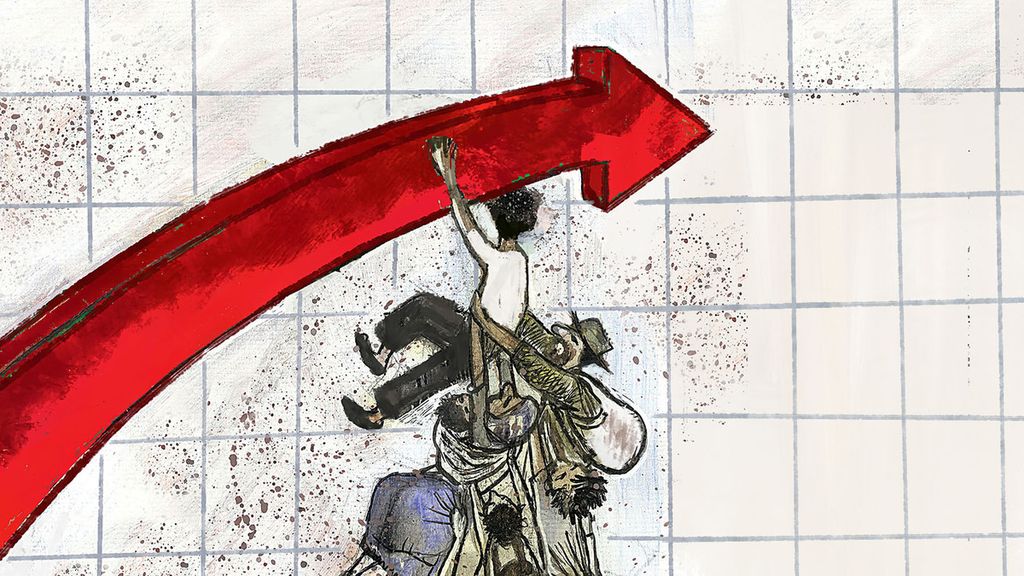
Rising fuel prices, as expected, have led to inflation. The challenge is to maintain people's purchasing power.
Statistics Indonesia (BPS) noted that annual inflation amounted to 5.95 percent, while for September 2022 it was 1.17 percent, mainly due to the increase in fuel prices (BBM). Inflation indicates an increase in the price of goods and services. The increase, if controlled, indicates economic growth. Inflation that exceeds predictions can have a serious impact on people's welfare and affect future economic performance. Apart from rising fuel prices, food is also experiencing inflation.
The immediate impact of inflation is the decline in people's purchasing power. The amount of goods and services that can be purchased decreases by the same amount of money. Inflation will affect especially the poor and vulnerable groups.
Also read:
> The World and Inflation
> Inflation and Village Funds
The poor and vulnerable people spend most of their income on basic needs, especially food. Transportation costs that also move up, along with rising fuel prices, also erode purchasing power. In the end, the decline in purchasing power will reduce the demand for goods and services.
Another impact of inflation is the increase in the central bank's benchmark interest rate, as a monetary mechanism to tame inflation. On the other hand, an increase in the benchmark interest rate also pushes up bank lending rates and puts the brakes on new loans for business or consumption. High inflation also encourages workers and employees to demand wage increases which will affect the prices of goods and services.

The government pays serious attention to rising inflation and its impact on society. High world energy prices have caused the government to reduce fuel subsidies to maintain the sustainability of the state budget. President Joko “Jokowi” Widodo has repeatedly reminded local governments to play a more active role in maintaining food production. Local governments are asked to use their budgets to provide a cushion for the transportation of people and goods.
They will produce if the results of their efforts give commensurate rewards, because farmers are rational business actors.
If energy prices depend on international markets, and Indonesia becomes an energy importer, we can produce food domestically. However, food production depends on millions of farmers, livestock farmers and fishermen. They will produce if the results of their efforts give commensurate rewards, because farmers are rational business actors.
To ensure food production is maintained, fertilizers must be available at reasonable prices. Our logistics must be more efficient so that there is a balance between farmers' income and prices at the consumer level.

The government tries to maintain people's purchasing power by continuing social assistance. However, MSMEs must be maintained to continue producing by helping them to be digitally literate and able to manage their business. Government spending on domestic products, especially MSME products, can be an economic driver. We can do all these things together domestically.
(This article was translated by Hyginus Hardoyo)


